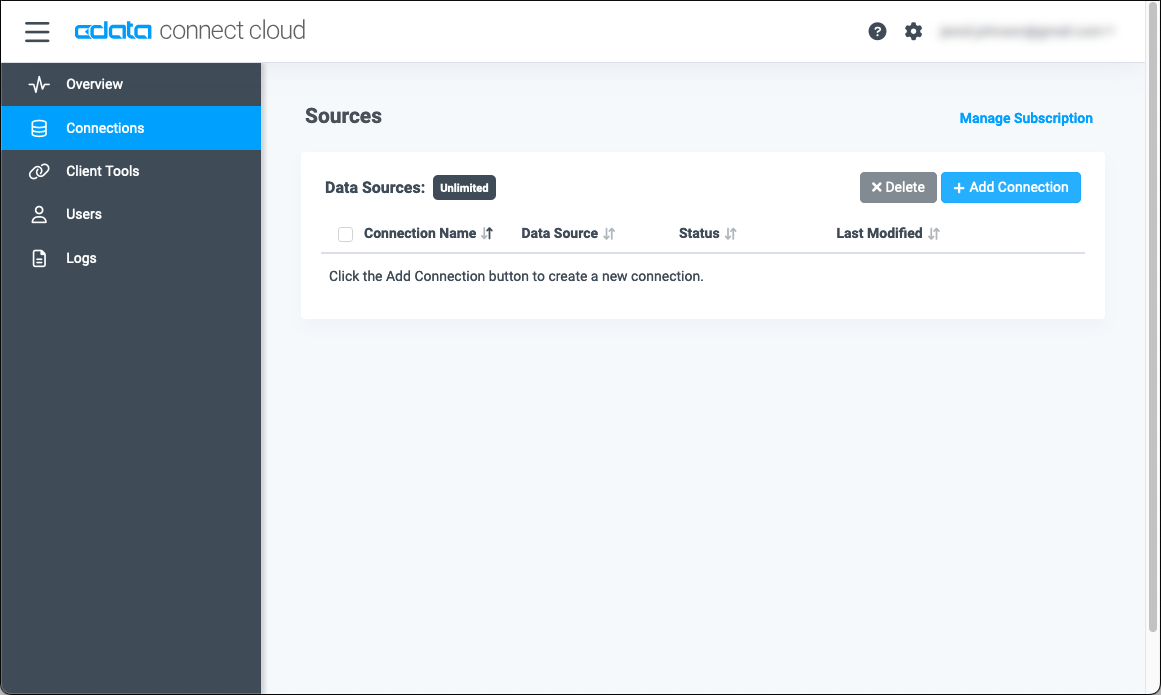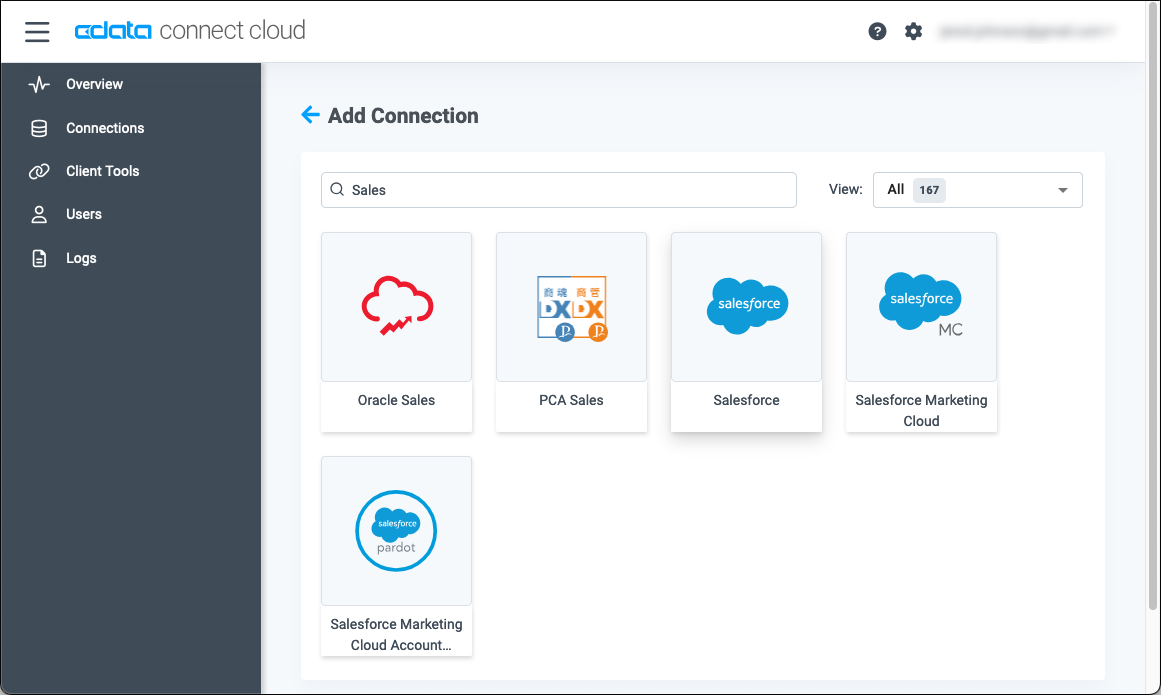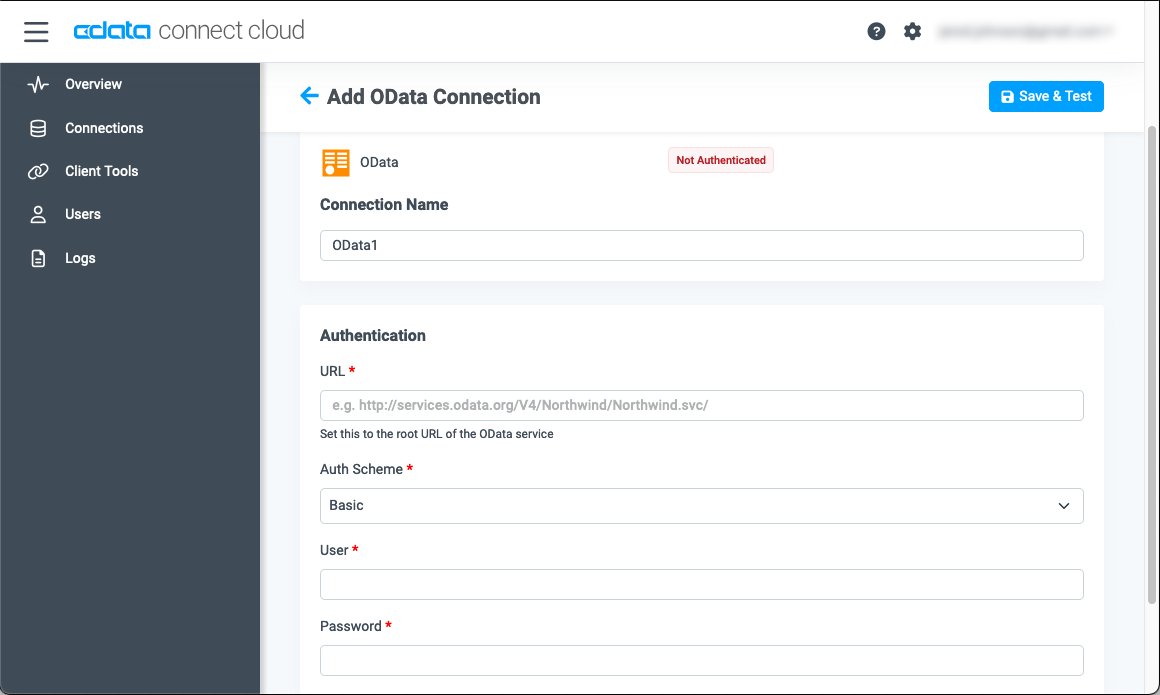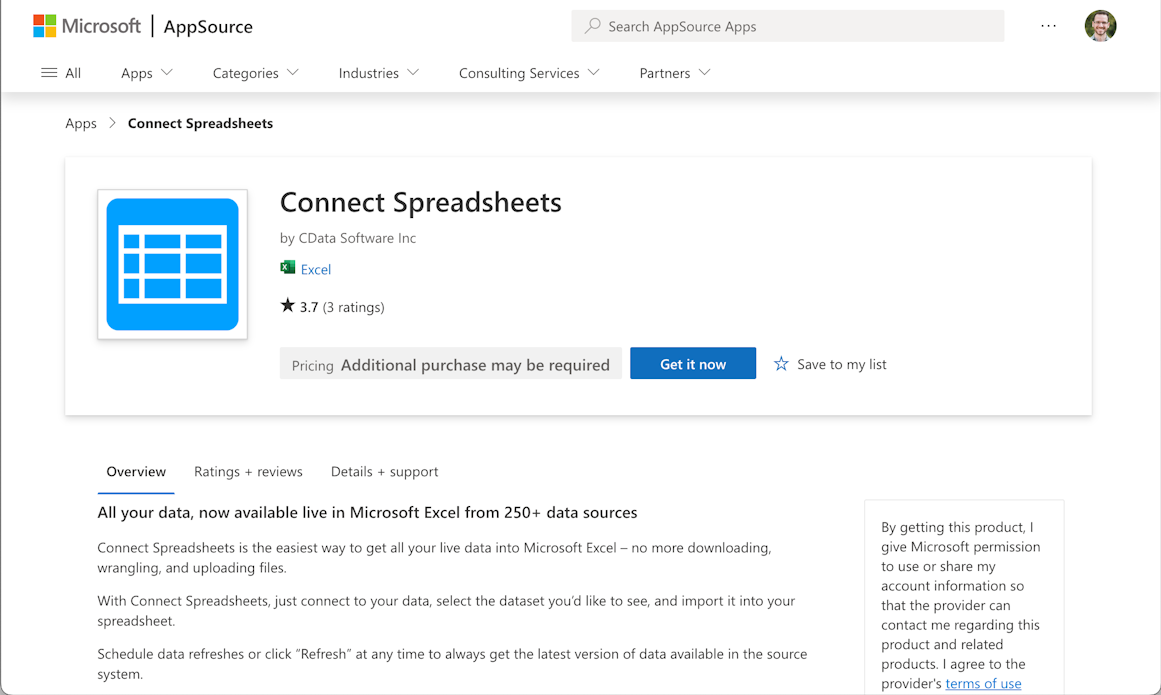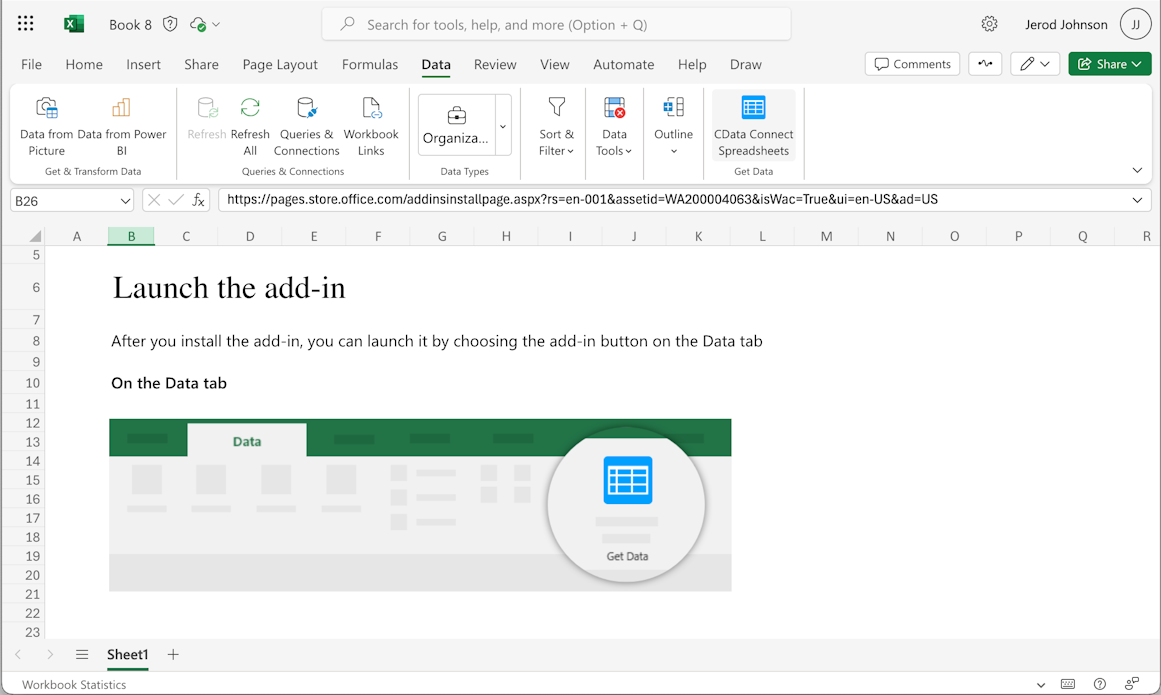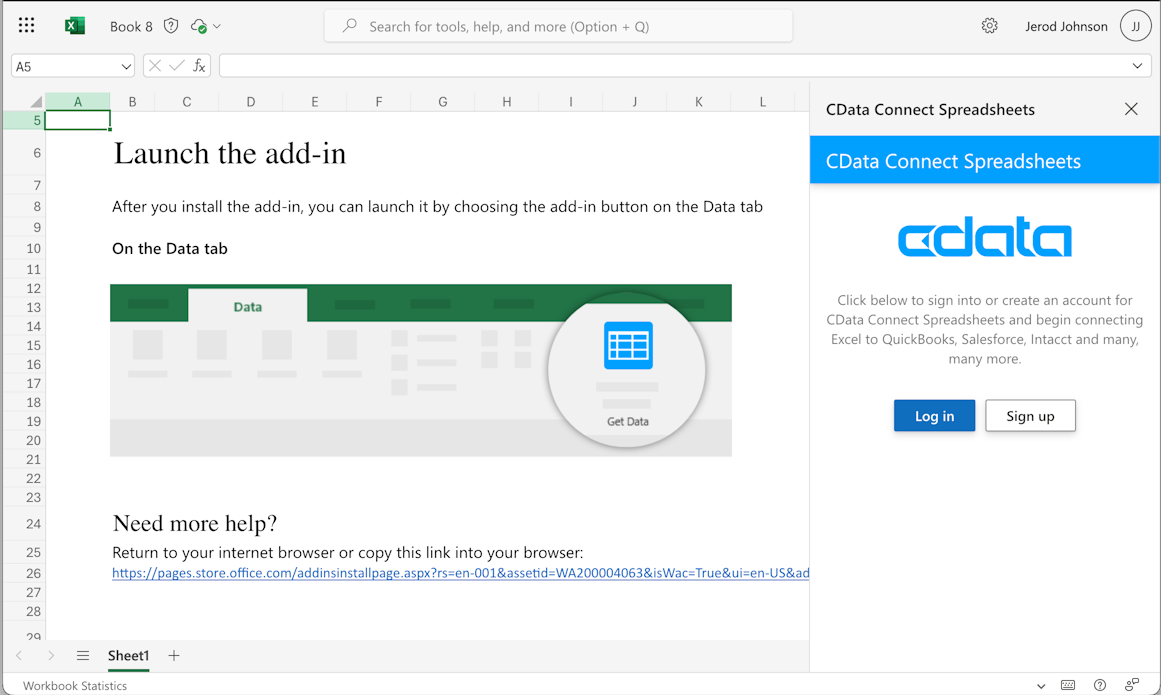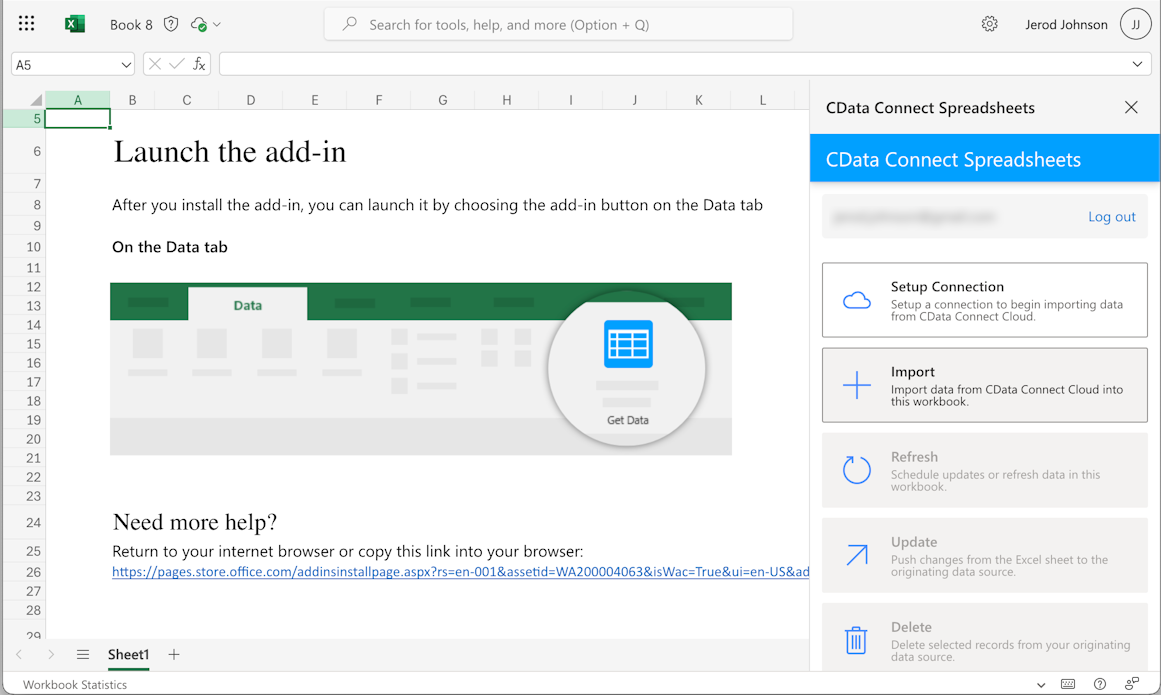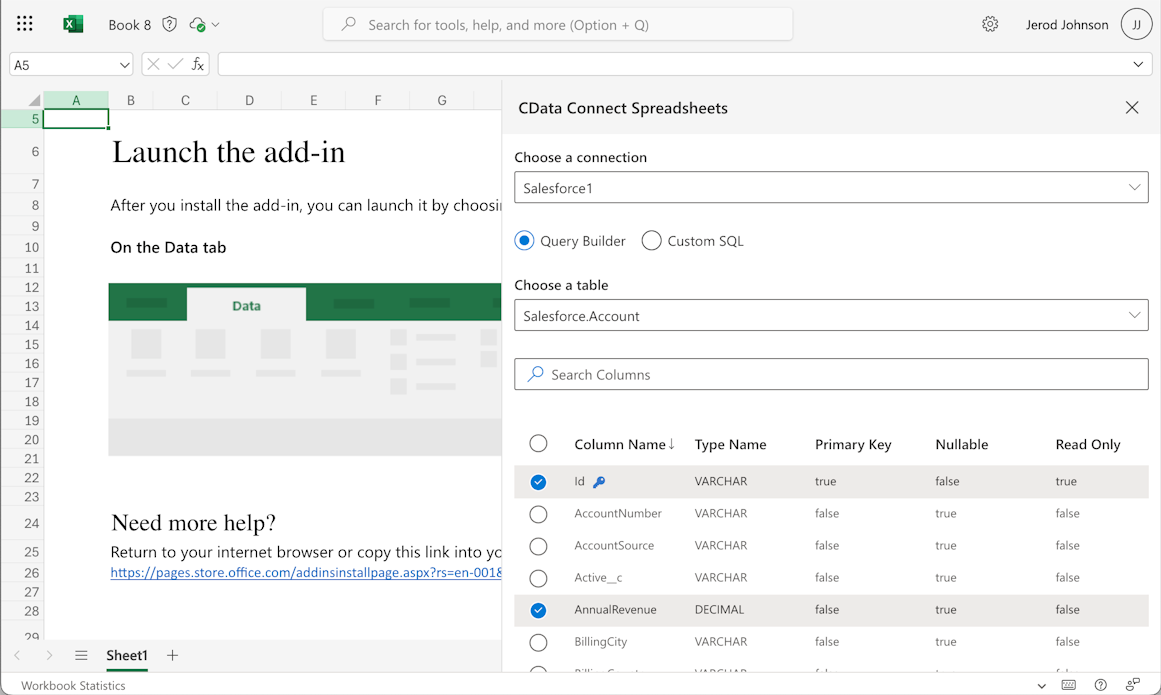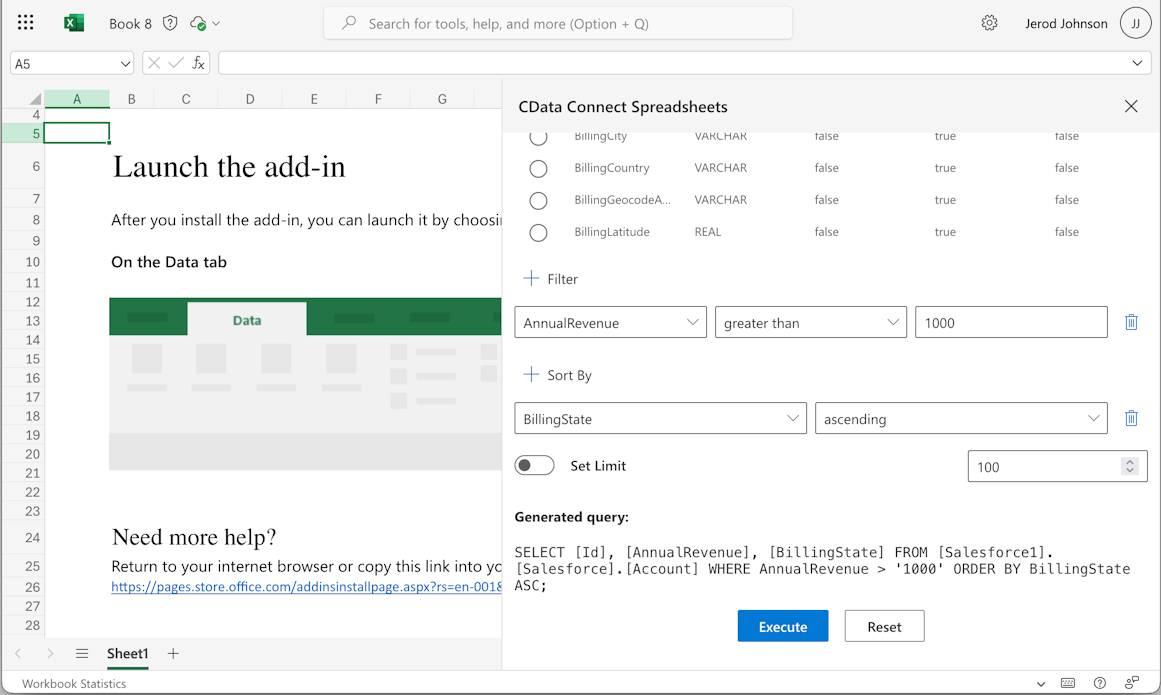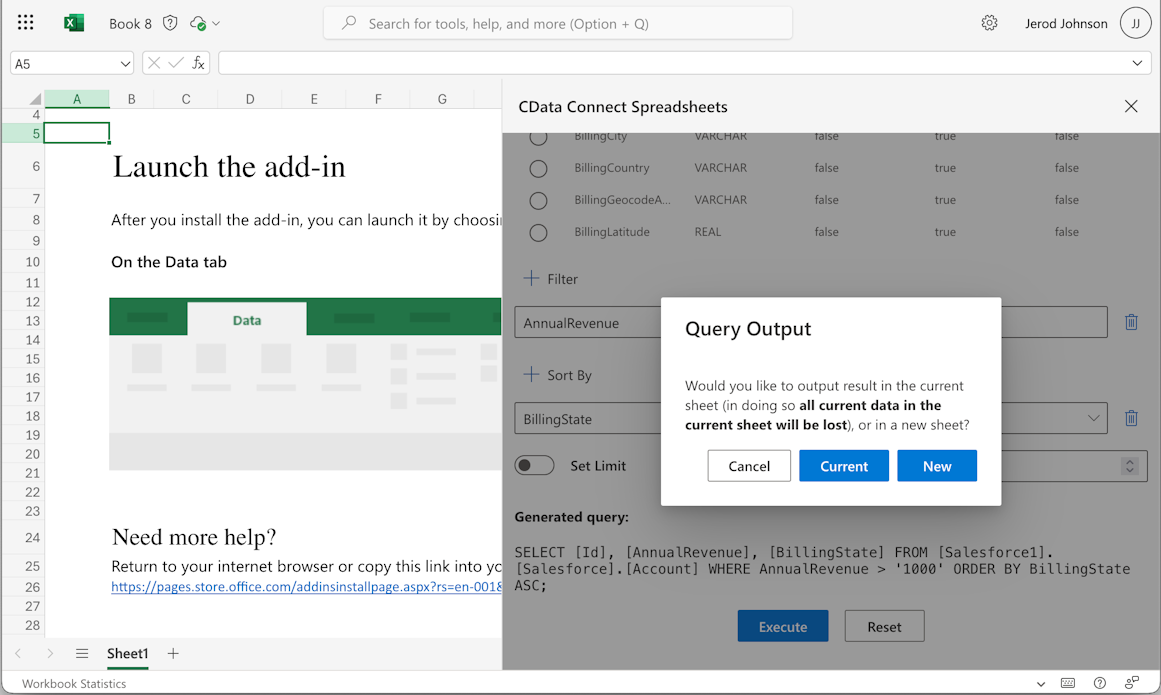Discover how a bimodal integration strategy can address the major data management challenges facing your organization today.
Get the Report →Access Live Azure Data Lake Storage Data in Excel for the Web (Excel 365/Online)
Connect to Azure Data Lake Storage data from Excel 365 Online (Excel for the web) with Connect Spreadsheets.
Looking for Connect Cloud instructions?
Your Connect Cloud account includes Connect Spreadsheets, so you can use the instructions below. You can expect minor differences when referencing the Connect Spreadsheet platform, but the principles still apply!
Microsoft Excel for the web represents a cloud-native iteration of Microsoft Excel. When combined with Connect Spreadsheets by CData, you gain immediate access to Azure Data Lake Storage data directly within Excel, facilitating data analysis, collaboration, calculations, and more. This article shows how to connect to Azure Data Lake Storage in Connect Spreadsheets and access live Azure Data Lake Storage data in Excel spreadsheets online.
Connect Spreadsheets is the easiest way to get all your live data into Microsoft Excel and Google Sheets - no more downloading, wrangling, and uploading files again. Just connect to your data, select the dataset you'd like to see, and import it into your spreadsheet.
This setup requires a Connect Spreadsheets instance and the Connect Spreadsheets Add-In for Excel. To get started, sign up a free trial of Connect Spreadsheets and install the free Connect Spreadsheets Excel Add-In.
Configure Azure Data Lake Storage Connectivity for Excel
Connectivity to Azure Data Lake Storage from Excel is made possible through Connect Spreadsheets . To work with Azure Data Lake Storage data from Excel, we start by creating and configuring a Azure Data Lake Storage connection.
- Log into Connect Spreadsheets, click Connections and click Add Connection
![Adding a Connection]()
- Select "Azure Data Lake Storage" from the Add Connection panel
![Selecting a data source]()
-
Enter the necessary authentication properties to connect to Azure Data Lake Storage.
Authenticating to a Gen 1 DataLakeStore Account
Gen 1 uses OAuth 2.0 in Azure AD for authentication.
For this, an Active Directory web application is required. You can create one as follows:
To authenticate against a Gen 1 DataLakeStore account, the following properties are required:
- Schema: Set this to ADLSGen1.
- Account: Set this to the name of the account.
- OAuthClientId: Set this to the application Id of the app you created.
- OAuthClientSecret: Set this to the key generated for the app you created.
- TenantId: Set this to the tenant Id. See the property for more information on how to acquire this.
- Directory: Set this to the path which will be used to store the replicated file. If not specified, the root directory will be used.
Authenticating to a Gen 2 DataLakeStore Account
To authenticate against a Gen 2 DataLakeStore account, the following properties are required:
- Schema: Set this to ADLSGen2.
- Account: Set this to the name of the account.
- FileSystem: Set this to the file system which will be used for this account.
- AccessKey: Set this to the access key which will be used to authenticate the calls to the API. See the property for more information on how to acquire this.
- Directory: Set this to the path which will be used to store the replicated file. If not specified, the root directory will be used.
![Configuring a connection (Salesforce is shown)]()
- Click Create & Test
With the connection configured, you are ready to connect to Azure Data Lake Storage data from Excel for the web.
Access Live Azure Data Lake Storage Data in Excel for the web
The steps below outline connecting to Connect Spreadsheets from Excel to access live Azure Data Lake Storage data.
- Log into Excel, create a new sheet (or open an existing one).
- Click Insert and click Office Add-ins. (If you have already installed the Add-In, jump to step 4.)
- Search for Connect Spreadsheets and click "Get it now" to install the Add-in.
![Install the Add-In]()
- Back in Excel, open the Data ribbon select and click the Connect Spreadsheets "Get Data" button.
![Opening the Add-In]()
- In the Add-In panel, click "Log in" to sign into and authenticate with your Connect Spreadsheets account
![Authorizing the Add-In]()
- In the Connect Spreadsheets panel in Excel, click Import
![Connect Spreadsheets panel in Excel]()
- Choose a Connection (e.g. ADLS1), Table (e.g. Resources), and Columns to import
![Connect Spreadsheets panel in Excel]()
- Optionally add Filters, Sorting, and a Limit
![Choosing a Connection, Table, and Columns]()
- Click Execute to import the data
![Executing the Query]()
Live Access to Azure Data Lake Storage Data from Spreadsheets
New, you have a direct, cloud-to-cloud connection to live Azure Data Lake Storage data from your Excel workbook. You can add more data to your workbook for calculations, aggregations, collaboration, and more.
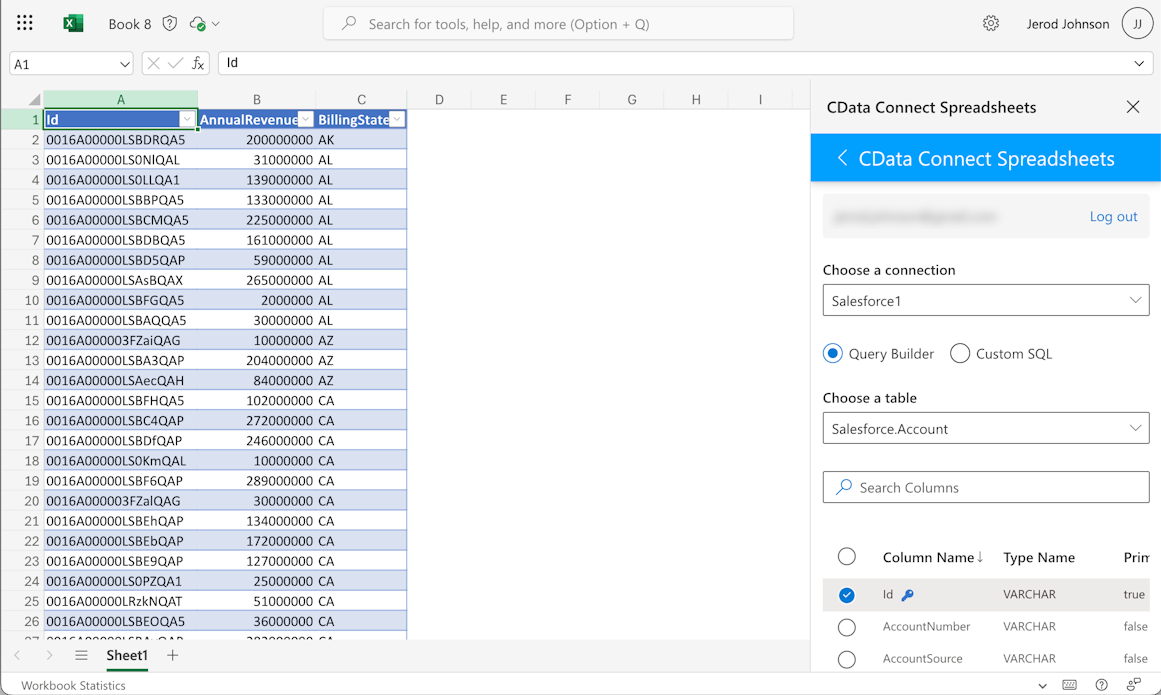
Try Connect Spreadsheets and get real-time data access to 100+ SaaS, Big Data, and NoSQL sources directly from your spreadsheet apps.





